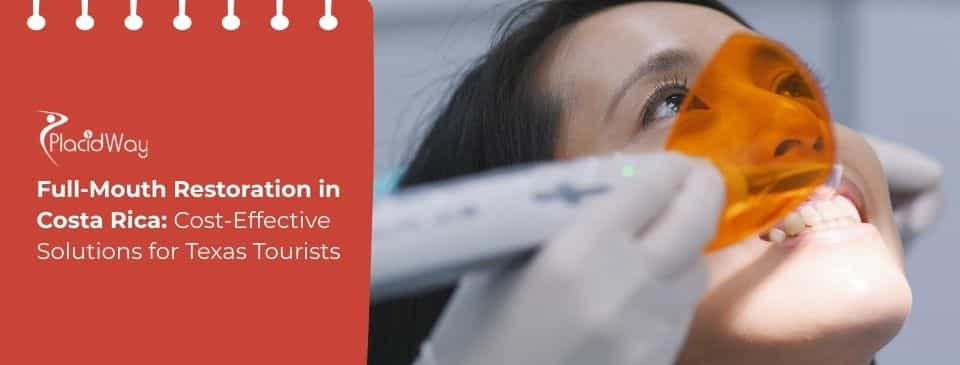
Full-mouth restoration can be a life-changing solution for those struggling with severe dental issues, but the cost in the United States often makes it unattainable. For many Texas residents, Costa Rica has become an attractive alternative, offering high-quality dental care at a fraction of the price. With experienced dentists, modern clinics, and significant savings, full-mouth restoration in Costa Rica provides both affordability and excellent results.
This guide explores the treatment options, benefits, and what Texas tourists can expect during their dental journey abroad.
Key Takeaways
-
Full-mouth restoration in Costa Rica offers Texas tourists significant cost savings, often between 60% and 80% compared to prices in the USA, for comprehensive dental work.
-
Costa Rica dental clinics boast internationally trained dentists, state-of-the-art technology, and adherence to global standards, many holding JCI or ADA accreditations.
-
Procedures commonly included are dental implants (All-on-4, All-on-6), crowns, bridges, veneers, and gum treatments, all tailored to the patient's needs.
-
The typical cost for full-mouth restoration in Costa Rica can range from $15,000 to $35,000 (£12,000 to £28,000), while in Texas/USA, it could exceed $50,000 to $80,000+.
-
Combining treatment with a relaxing vacation is a major draw, offering both advanced dental care and a unique travel experience.
Understanding Full-Mouth Restoration
Full-mouth restoration is a comprehensive treatment plan designed to rebuild and restore all teeth in both the upper and lower jaws, addressing extensive dental issues to achieve optimal health, function, and aesthetics.
Full-mouth restoration, also known as full-mouth reconstruction or rehabilitation, isn't a single procedure but a customized combination of various dental treatments. It's recommended when a patient has multiple widespread dental problems affecting most or all teeth, such as extensive decay, multiple missing teeth, severely worn or fractured teeth, advanced gum disease, or bite misalignment (malocclusion).
The ultimate goal is to restore the entire mouth to a state of ideal health, function, and aesthetic appeal, significantly improving chewing, speaking, and overall oral health.
Why Consider Full-Mouth Restoration?
Individuals consider full-mouth restoration to alleviate chronic dental pain, restore the ability to eat comfortably, correct cosmetic imperfections, prevent further oral health deterioration, and regain confidence in their smile and overall well-being.
For many, extensive dental issues can severely impact daily life. Here are the primary reasons why patients, especially from Texas, explore full-mouth restoration:
-
Pain Relief: Chronic pain from cracked, decayed, or severely worn teeth, or from jaw misalignment, can be debilitating. Restoration addresses these underlying causes.
-
Restored Function: The inability to chew a variety of foods properly can lead to nutritional deficiencies and digestive problems. Full-mouth restoration allows for comfortable and efficient eating.
-
Improved Oral Health: It provides a "reset" for oral health, treating gum disease, eliminating decay, and establishing a strong foundation to prevent future issues. Poor oral health is linked to systemic problems, so this benefits overall wellness.
-
Enhanced Aesthetics: Beyond function, a damaged smile can significantly impact self-esteem and social confidence. Modern restorative techniques create beautiful, natural-looking results.
-
Prevention of Further Damage: Addressing widespread issues comprehensively can prevent a domino effect of dental problems, saving time and money in the long run.
-
Unexpected Health Benefits: Some patients report unexpected benefits, such as weight loss due to the ability to eat healthier foods and improved digestion from proper chewing.
Types of Full-Mouth Restoration Procedures
A full-mouth restoration typically involves a combination of procedures such as dental implants (including All-on-4/6 systems), crowns, bridges, veneers, root canals, and gum treatments, all customized to the patient's specific needs.
The specific procedures included in a full-mouth restoration plan are highly individualized, determined by the patient's existing dental condition and desired outcomes. Common treatments include:
-
Dental Implants: These are titanium posts surgically placed into the jawbone to replace missing tooth roots. They serve as anchors for crowns, bridges, or full-arch prosthetics.
-
All-on-4/All-on-6 Implants: Revolutionary techniques to replace a full arch of teeth (upper or lower) using just four or six strategically placed implants to support a fixed bridge. This is a popular option for those with significant tooth loss.
-
Zygomatic Implants: Used in cases of severe jawbone loss, these longer implants are anchored in the cheekbone (zygoma) instead of the jawbone.
-
-
Dental Crowns: Caps placed over damaged or weakened teeth to restore their shape, size, strength, and appearance. They are also used to cover dental implants.
-
Dental Bridges: Used to bridge the gap created by one or more missing teeth, anchored to adjacent natural teeth or dental implants.
-
Dental Veneers: Thin, custom-made shells bonded to the front surface of teeth to improve their appearance, correcting discoloration, chips, or minor misalignments.
-
Periodontal (Gum) Therapy: Treatments to address gum disease, ranging from deep cleaning (scaling and root planing) to gum grafting or other surgical interventions.
-
Root Canal Therapy: Treatment for infected or damaged tooth pulp to save the natural tooth.
-
Tooth Extractions: Removal of severely damaged or unrestorable teeth.
-
Bone Grafting/Sinus Lifts: Procedures to augment jawbone density, necessary if there isn't enough bone to support dental implants.
-
Orthodontics: Braces or clear aligners to correct bite issues or misaligned teeth before other restorative work.
.jpg)
Candidacy for Full-Mouth Restoration
Candidates for full-mouth restoration are individuals with extensive dental damage, multiple missing teeth, severe tooth wear, advanced gum disease, or bite problems who are in good general health and committed to a comprehensive treatment plan.
A thorough evaluation by a qualified prosthodontist or general dentist specializing in complex restorative cases is essential to determine if you are a suitable candidate. You might be a candidate if you have:
-
Multiple Missing Teeth: Due to decay, trauma, or gum disease.
-
Severely Damaged or Decayed Teeth: Teeth that cannot be adequately repaired with fillings or smaller restorations.
-
Extensive Tooth Wear: Caused by bruxism (teeth grinding) or acid erosion.
-
Advanced Periodontal Disease: Requiring comprehensive gum treatment before restoration.
-
Significant Bite Problems (Malocclusion): Leading to jaw pain, headaches, or uneven tooth wear.
-
Traumatic Dental Injuries: Extensive damage to teeth and oral structures from an accident.
-
Congenital Dental Conditions: Affecting the development or structure of teeth.
Crucially, you should also be in good overall health and committed to maintaining excellent oral hygiene post-treatment. A comprehensive assessment, including X-rays, impressions, and a review of your medical history, will guide the treatment planning.
The Full-Mouth Restoration Procedure in Detail
The full-mouth restoration process is typically multi-phased, starting with an initial assessment and treatment planning, followed by addressing foundational oral health issues, performing surgical procedures like dental implant placement, and finally, placing the custom-made restorations.
Undergoing a full-mouth restoration is a journey, not a single appointment. It involves careful planning and execution, often over multiple visits.
-
Initial Assessment and Treatment Planning: This foundational stage involves a detailed examination, digital X-rays, 3D scans, and impressions to create diagnostic models. The dentist will discuss your concerns and goals to develop a personalized, phased treatment plan.
-
Addressing Foundational Oral Health Issues: Before major restorative work, any existing problems must be treated. This may include:
-
Gum Disease Treatment: Scaling, root planing, or more advanced periodontal therapies.
-
Tooth Extractions: Removing unsalvageable teeth.
-
Root Canals: Treating infected teeth to preserve them.
-
Bone Grafting/Sinus Lifts: If insufficient bone density is present for dental implants.
-
-
Surgical Phase (e.g., Dental Implant Placement): If dental implants are part of your plan, titanium posts are surgically inserted into your jawbone. This often requires a healing period of several months (osseointegration) for the implants to fuse with the bone. Temporary prosthetics may be provided during this time.
-
Restorative Phase: Once the mouth is healthy and any surgical sites have healed, the custom-made restorations are fabricated and placed. This includes:
-
Attaching abutments (connectors) to the implants.
-
Placing dental crowns, bridges, or full-arch prosthetics (like All-on-4/6 dentures).
-
Bonding veneers to natural teeth.
-
-
Final Adjustments and Post-Treatment Care: Your dentist will make final adjustments to ensure a comfortable bite and aesthetic harmony. You'll receive detailed instructions on how to care for your new smile.
The entire process can take several months to over a year, depending on the complexity and healing required.
Recovery and Aftercare
Recovery from full-mouth restoration varies based on the procedures performed but generally involves managing discomfort and swelling for a few days to weeks, adhering to a soft diet, and meticulously following oral hygiene instructions for optimal healing and longevity of results.
The recovery period is a critical phase for the success and longevity of your full-mouth restoration.
-
Immediate Post-Procedure (First few days to 2 weeks):
-
Discomfort and Swelling: It's normal to experience some pain, swelling, and bruising, especially after surgical procedures like dental implant placement. Pain medication will be prescribed, and cold compresses can help reduce swelling.
-
Diet: You'll likely be on a soft or liquid diet initially to avoid stress on healing areas.
-
Oral Hygiene: Gentle cleaning of your mouth with a soft-bristle toothbrush and antimicrobial mouthwash (if prescribed) is essential. Avoid vigorous rinsing or spitting.
-
-
Intermediate Recovery (2 weeks to several months):
-
Diet Progression: Gradually reintroduce solid foods as advised by your dentist, avoiding hard, sticky, or very chewy items that could damage new restorations or healing sites.
-
Oral Care: You can typically resume your usual brushing and flossing routine once initial sensitivity subsides, usually within 2-4 weeks.
-
Healing: For dental implants, the osseointegration process takes several months. It's crucial not to disturb the implants during this time.
-
-
Long-Term Aftercare:
-
Excellent Oral Hygiene: This is paramount. Brush twice daily, floss daily, and use any recommended interdental cleaners.
-
Regular Dental Check-ups: Maintain routine visits to your dentist for professional cleanings and examinations to ensure the health of your natural teeth, gums, and restorations.
-
Avoid Harmful Habits: Refrain from chewing on ice, biting hard objects, or using your teeth as tools. If you grind your teeth, a nightguard may be recommended.
-
Expert Insight: "The meticulous aftercare and commitment to excellent oral hygiene are just as vital as the surgical precision in achieving a successful and long-lasting full-mouth restoration. Patients who actively participate in their recovery and follow instructions diligently consistently experience the best outcomes,"
Potential Risks and Complications
While full-mouth restoration has a high success rate, potential risks include infection, dental implant failure, nerve damage, temporary discomfort, and, rarely, issues with restoration fit or longevity, making careful planning and an experienced dental team crucial.
Though highly successful, full-mouth restoration is a complex undertaking, and like any extensive medical procedure, it carries some inherent risks:
-
Infection: A risk with any surgical procedure, including dental implant placement, tooth extractions, or gum surgery. Proper hygiene and antibiotics can mitigate this.
-
Dental Implant Failure: Implants may not properly integrate with the jawbone, especially if there's insufficient bone density, poor healing, or underlying health issues. Smoking significantly increases this risk.
-
Nerve Damage: Rare, but can occur during procedures, particularly in the lower jaw, potentially leading to temporary or, in very rare cases, permanent numbness or tingling.
-
Temporary Discomfort and Swelling: Expected after surgical phases, but persistent or severe pain should be reported.
-
Gum Recession or Damage: Can occur around crowns or implants if not properly placed or cared for.
-
Issues with Restorations: Crowns, bridges, or veneers may chip, crack, or become loose over time, requiring repair or replacement.
-
Sinus Perforation: A rare complication during upper jaw implant placement, requiring immediate intervention.
Choosing an experienced and highly qualified dental specialist in Costa Rica, who uses advanced imaging and follows strict protocols, helps minimize these risks.
Cost of Full-Mouth Restoration in Costa Rica
The cost of full-mouth restoration in Costa Rica is significantly lower than in Texas/USA, typically ranging from $15,000 to $35,000 (£12,000 to £28,000), offering savings of 60-80% for high-quality, comprehensive dental care.
For Texans seeking full-mouth restoration, the financial savings offered by Costa Rica are a primary motivator. While prices vary based on complexity, materials, and clinic, the value proposition is undeniable.
|
Procedure/Component |
Estimated Cost in Costa Rica (USD) |
Estimated Cost in Costa Rica (GBP) |
Estimated Cost in Texas/USA (GBP) |
Notes |
|---|---|---|---|---|
|
Single Dental Implant |
$700 - $1,500 |
£560 - £1,200 |
£3,000 - £6,000+ |
Includes implant, abutment, and crown. Cost varies by implant type (titanium vs. zirconium) and brand. |
|
All-on-4 Implants (per arch) |
$8,000 - $12,000 |
£6,400 - £9,600 |
£20,000 - £35,000+ |
Replaces a full arch of teeth with 4 implants and a fixed bridge. This is for one jaw (upper or lower). |
|
All-on-6 Implants (per arch) |
$9,000 - $15,000 |
£7,200 - £12,000 |
£25,000 - £40,000+ |
Similar to All-on-4 but uses 6 implants for increased stability, often for upper arch or those with more bone loss. |
|
Full Zirconia Bridge (per arch, for implants) |
$4,000 - $7,000 |
£3,200 - £5,600 |
£10,000 - £18,000+ |
The prosthetic part that connects to implants. Material quality affects cost. |
|
Dental Crown (porcelain/zirconia) |
$350 - $700 |
£280 - £560 |
£1,000 - £2,500+ |
For individual teeth, used on natural teeth or as part of implant restoration. |
|
Bone Grafting (per site) |
$400 - $800 |
£320 - £640 |
£800 - £2,000+ |
Essential if insufficient jawbone for implants. |
|
Sinus Lift |
$700 - $1,500 |
£560 - £1,200 |
£2,000 - £4,000+ |
For upper jaw implants where the sinus floor is too close. |
|
Comprehensive Full-Mouth Restoration |
$15,000 - $35,000 |
£12,000 - £28,000 |
$50,000 - $80,000+ (£40,000 - £64,000+) |
This range reflects a full restoration involving multiple implants and extensive prosthetics for both arches. Always get a personalized quote. |
|
Flights (Texas-Costa Rica return) |
$400 - $1,000 |
£320 - £800 |
N/A |
Varies by airline, booking time, and airport. |
|
Accommodation (2 weeks) |
$800 - $2,000 |
£640 - £1,600 |
N/A |
Depending on hotel class and location. |
|
Translation/Patient Coordinator |
Often included |
Often included |
N/A |
Many clinics offer this as part of their international patient services. |
Did You Know? The significantly lower cost of living and operational expenses in Costa Rica, including dentist salaries and laboratory fees, directly translate into more affordable dental prices for international patients, offering savings of up to 80% compared to US prices.
Why Choose Costa Rica for Full-Mouth Restoration?
Costa Rica is a premier destination for full-mouth restoration due to its blend of advanced dental technology, internationally trained specialists, stringent quality standards, and remarkably affordable prices, all set within a beautiful, tranquil environment ideal for recovery.
For Texas tourists seeking full-mouth restoration, Costa Rica offers a compelling array of advantages:
-
Exceptional Quality of Care: Many Costa Rican dentists receive international training, often from institutions in the USA and Europe. Clinics utilize FDA-approved materials and state-of-the-art technology, comparable to top-tier facilities in North America.
-
Significant Cost Savings: The most prominent advantage is the dramatic reduction in cost. Patients can achieve comprehensive full-mouth restoration for a fraction of the price they would pay in Texas or other parts of the USA, even when factoring in travel and accommodation.
-
Highly Skilled Specialists: Costa Rica has a high concentration of prosthodontists, oral surgeons, and implantologists who specialize in complex restorative procedures. Many are members of prestigious international dental organizations.
-
International Accreditations: Many leading dental clinics in Costa Rica are JCI (Joint Commission International) accredited or hold certifications from organizations like the American Association for Accreditation of Ambulatory Surgery, ensuring adherence to global standards for patient safety and sterilization.
-
Convenient Travel: With direct flights from major Texas cities (e.g., Houston, Dallas) to San José, Costa Rica is easily accessible, making it a practical choice for dental tourism.
-
Vacation Opportunity: Patients can combine their dental treatment with a relaxing and enjoyable vacation in Costa Rica's renowned natural beauty, from lush rainforests to stunning beaches, aiding in a stress-free recovery.
-
English-Speaking Staff: Many clinics catering to international patients have English-speaking staff and offer patient coordinator services, minimizing language barriers.
Preparing for Your Dental Journey to Costa Rica
Preparing for full-mouth restoration in Costa Rica involves a comprehensive initial consultation, meticulous organization of medical records, securing travel logistics, and understanding the clinic's support services to ensure a seamless and stress-free experience.
A well-planned journey is key to a successful full-mouth restoration experience in Costa Rica:
-
Initial Remote Consultation: Begin by contacting a reputable dental clinic in Costa Rica or a medical tourism facilitator like PlacidWay. You'll typically provide recent X-rays, photos of your teeth, and a detailed medical history for an initial virtual assessment and quote.
-
Medical and Dental Records: Gather all relevant dental and medical records from your Texas dentists and physicians. This includes X-rays, CT scans, treatment histories, and a list of all current medications. Ensure they are readily available electronically.
-
Treatment Plan Review: Work closely with the Costa Rican dental team to understand your personalized treatment plan, timeline (often requiring two visits a few months apart for implants), and what to expect at each stage.
-
Travel Arrangements:
-
Passport: Ensure your US passport is valid for at least six months beyond your planned stay.
-
Visa: US citizens do not need a visa for stays of up to 90 days in Costa Rica, but a return ticket or proof of onward travel is required.
-
Flights: Book flights from Texas to Juan Santamaría International Airport (SJO) in San José. Consider direct flights for convenience.
-
Accommodation: Your chosen clinic or facilitator can often assist with booking accommodation, often in hotels that offer medical tourist rates and are close to the clinic.
-
Travel Insurance: Purchase comprehensive travel and medical insurance that specifically covers overseas dental procedures and any potential complications.
-
-
Financial Planning: Confirm all costs with the clinic, including treatment, accommodation, transfers, and any additional services. Understand payment schedules and accepted methods.
-
Communication: Many clinics offer dedicated patient coordinators who speak English and can assist with all logistical aspects and serve as a liaison with your dental team.
-
Pre-Procedure Instructions: Adhere strictly to any pre-procedure guidelines provided by your dentist, which may include dietary restrictions, medication adjustments, or oral hygiene protocols.
Life After Full-Mouth Restoration
Life after full-mouth restoration can be transformative, leading to significantly improved chewing, speech, and aesthetics, boosting confidence and overall quality of life. Maintaining diligent oral hygiene and regular dental check-ups are essential for long-term success.
The impact of full-mouth restoration extends far beyond just dental health, profoundly affecting a patient's daily life:
-
Enhanced Eating Experience: One of the most significant benefits is the ability to eat virtually any food comfortably, enjoying a wider variety of textures and flavors, which can also lead to improved digestion and healthier eating habits.
-
Improved Speech: Missing or damaged teeth can affect speech clarity. Restoration helps improve articulation and confidence in speaking.
-
Boosted Confidence and Self-Esteem: A complete, aesthetically pleasing smile can dramatically improve self-image, making social interactions more enjoyable and boosting overall confidence.
-
Better Oral Health: With the underlying issues addressed, maintaining good oral hygiene becomes easier, reducing the risk of future decay and gum disease.
-
Long-Lasting Results: With proper care and regular maintenance, full-mouth restorations, especially those involving dental implants, are designed to last for many years, offering a durable and reliable solution.
-
Unexpected Lifestyle Changes: Many patients report increased motivation for overall health improvements, including weight loss and engaging more actively in life, as a direct result of their new smile.
The field of full-mouth restoration is constantly evolving, and leading clinics in Costa Rica are at the forefront of these advancements:
-
Digital Dentistry: The use of intraoral scanners and CAD/CAM (Computer-Aided Design/Computer-Aided Manufacturing) technology allows for highly precise digital impressions, design, and fabrication of crowns, veneers, and implant prosthetics, often speeding up the process.
-
3D Imaging: Cone-beam computed tomography (CBCT) scans provide detailed 3D images of jawbones, nerves, and soft tissues, enabling highly accurate planning for dental implant placement and minimizing risks.
-
High-Quality Materials: Use of premium materials like zirconia for crowns and bridges offers superior strength, biocompatibility, and aesthetic appeal, mimicking natural teeth.
-
Guided Implant Surgery: Computer-guided surgery enhances the precision of dental implant placement, improving success rates and reducing recovery time.
-
Immediate Load Implants: For suitable candidates, techniques like All-on-4 sometimes allow for temporary prosthetics to be placed on implants immediately after surgery, meaning patients don't have to wait months for a new smile.
Frequently Asked Questions (FAQs)
How long does a full-mouth restoration typically take in Costa Rica?
The timeline for full-mouth restoration in Costa Rica varies based on the complexity of your case, but it often involves two trips. The first trip (5-10 days) is for extractions and implant placement, followed by a healing period of 3-6 months, and then a second trip (7-14 days) for placing permanent restorations. Some simpler cases may require fewer visits, while more complex situations with extensive bone grafting could extend the overall duration.
What are the primary types of dental implants used in full-mouth restoration?
The primary types of dental implants used in full-mouth restoration are endosteal implants (placed in the jawbone) and specialized systems like All-on-4 or All-on-6 implants, which use a few implants to support a full arch of teeth. Zygomatic implants are used for severe bone loss. These options provide stable foundations for crowns, bridges, or full arch prosthetics.
Is the quality of dental work in Costa Rica comparable to Texas/USA?
Yes, the quality of dental work in Costa Rica, particularly in reputable clinics, is often comparable to or exceeds that in Texas/USA. Many Costa Rican dentists are internationally trained, and clinics use state-of-the-art technology and FDA-approved materials, adhering to global standards of care. International accreditations like JCI further assure high quality.
How much money can I really save on full-mouth restoration in Costa Rica?
You can expect to save a significant amount, often between 60% and 80%, on the total cost of full-mouth restoration in Costa Rica compared to private dental care in Texas/USA, even after accounting for travel and accommodation expenses. These substantial savings make advanced dental care more accessible.
What should I do if I experience a complication after returning to Texas?
In the rare event of a complication, you should first contact your Costa Rican dental clinic. Many reputable clinics offer warranties on their work and will provide guidance. You should also consult with a local dentist in Texas for immediate assessment, ensuring you share all your Costa Rican treatment records. Having comprehensive travel insurance that covers medical treatment abroad is highly recommended.
Do Costa Rican dentists speak English?
Yes, a significant number of dentists and staff in clinics catering to international patients in Costa Rica are fluent in English, ensuring clear communication throughout your full-mouth restoration journey. Many clinics also provide dedicated English-speaking patient coordinators. Language barriers are generally not a concern in established dental tourism clinics.
Can I finance full-mouth restoration in Costa Rica?
While financing options through Costa Rican clinics might be limited, some may offer flexible payment plans. US patients can explore third-party medical loans or personal financing options available in Texas, or use Health Savings Accounts (HSAs) if applicable, to cover the costs. Always discuss payment options with your chosen clinic or facilitator upfront.
Transform Your Smile with PlacidWay
Are you a Texas tourist dreaming of a complete smile transformation without the exorbitant costs? PlacidWay is your dedicated partner for navigating full-mouth restoration clinic in Costa Rica.

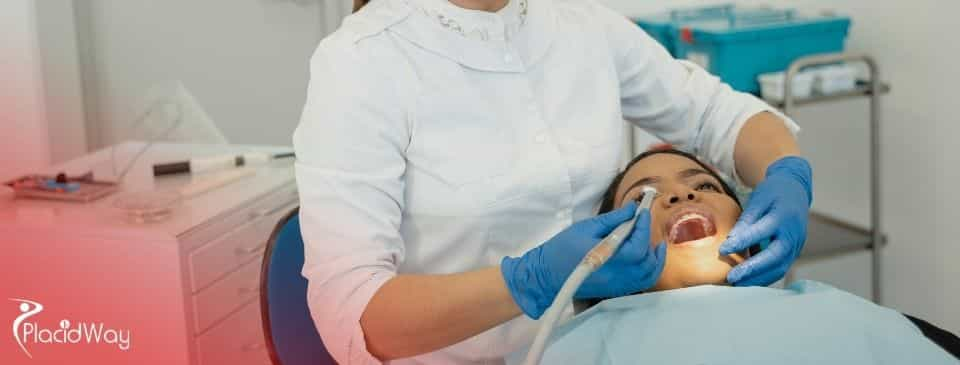

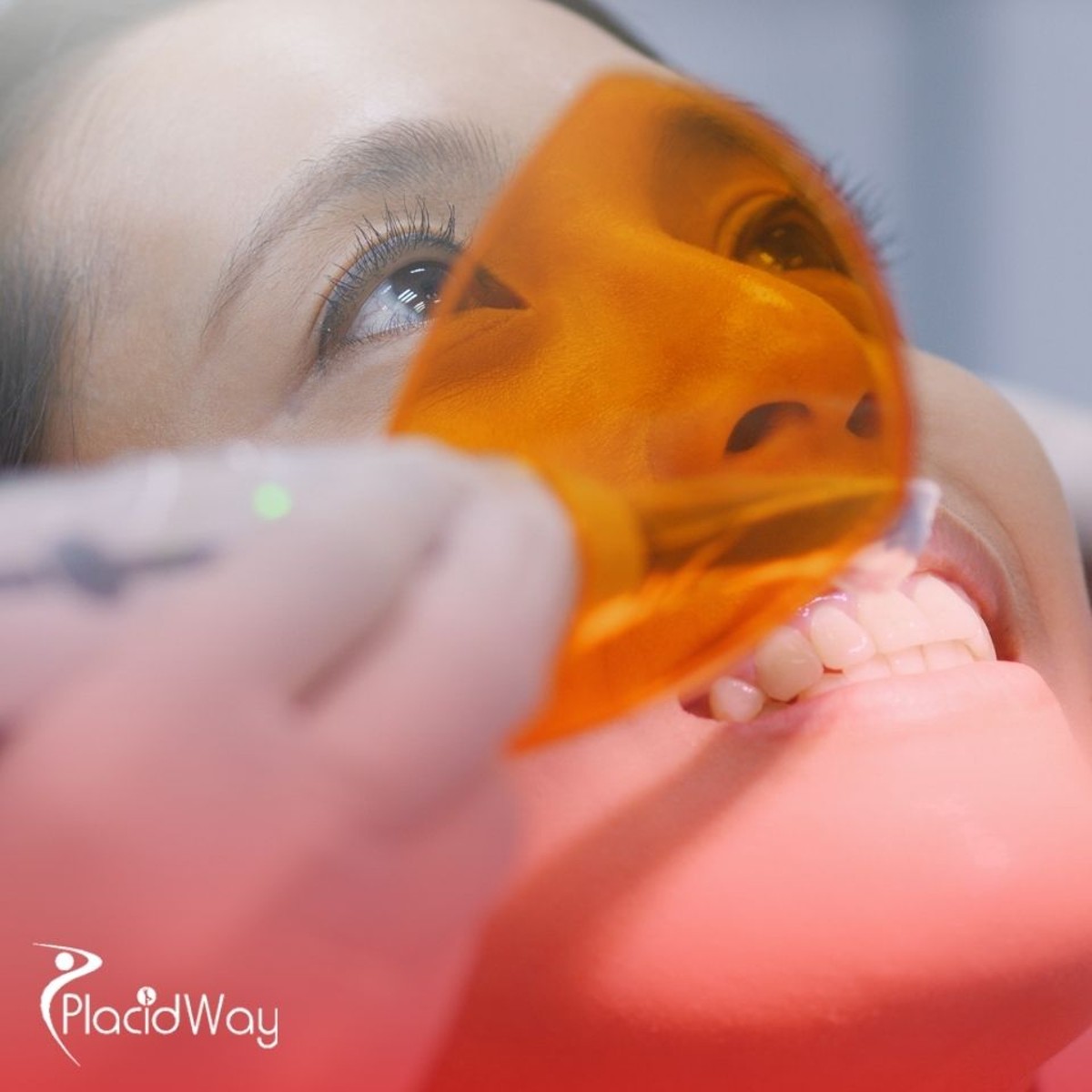






.png)
.png)
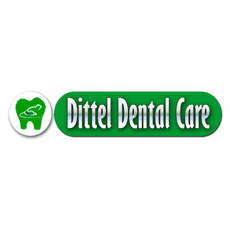
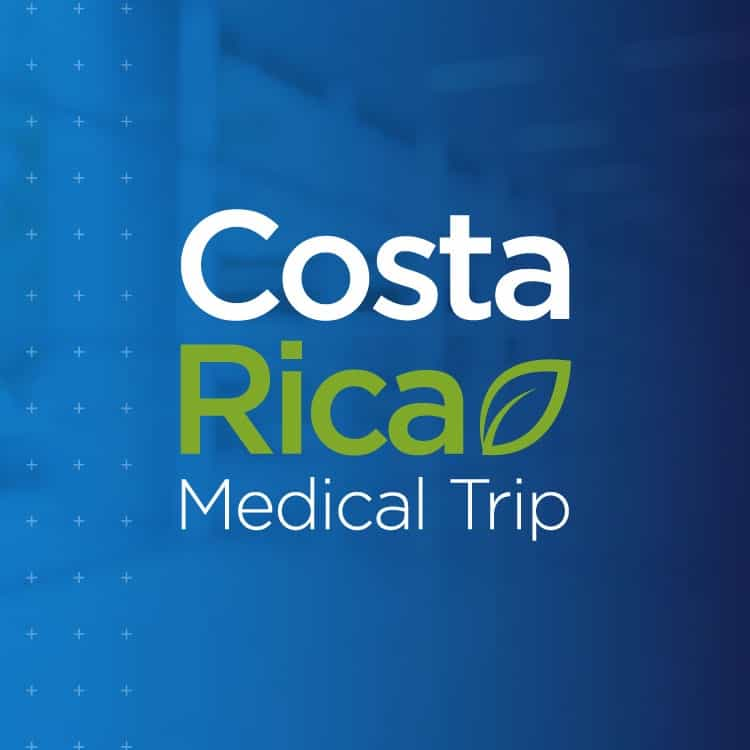
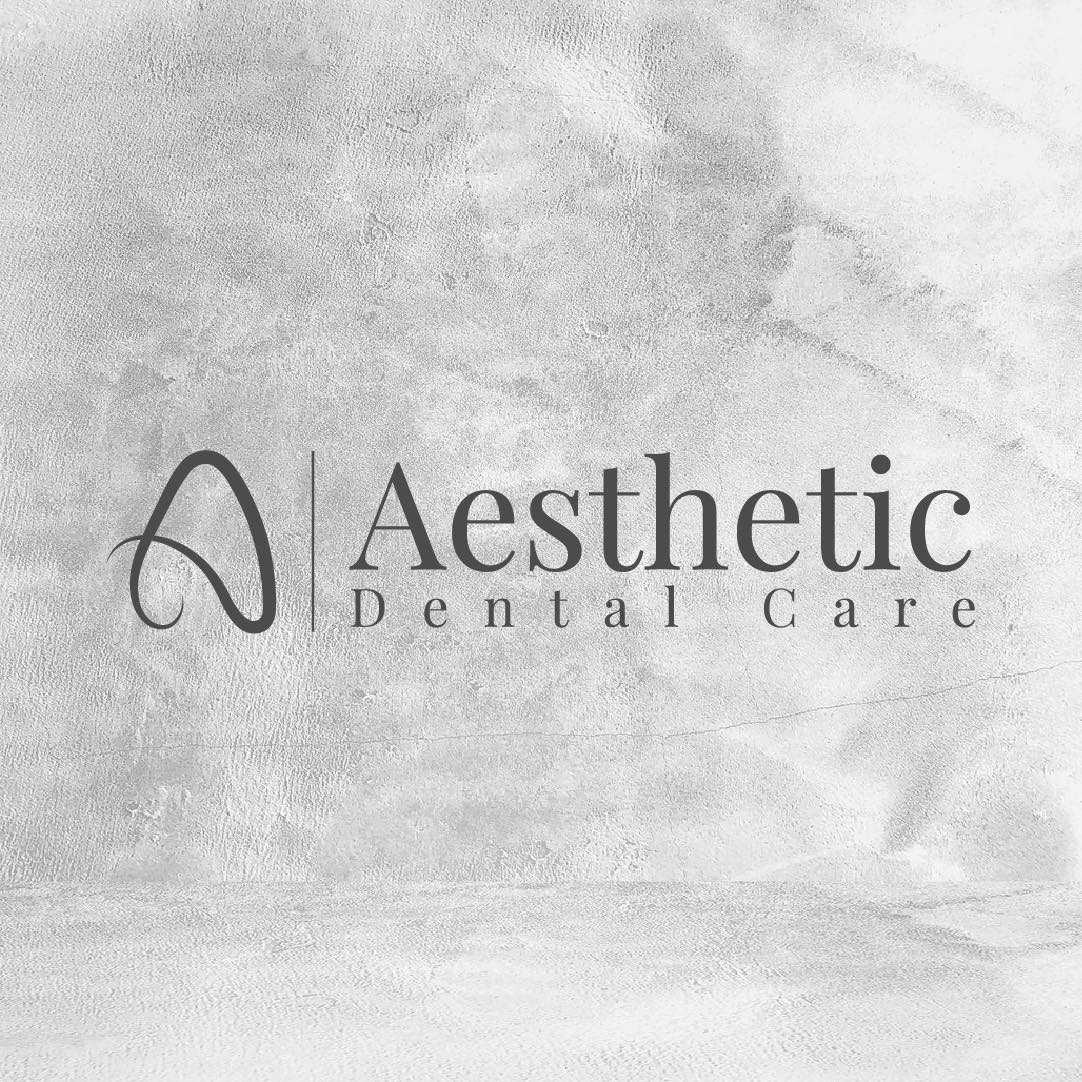

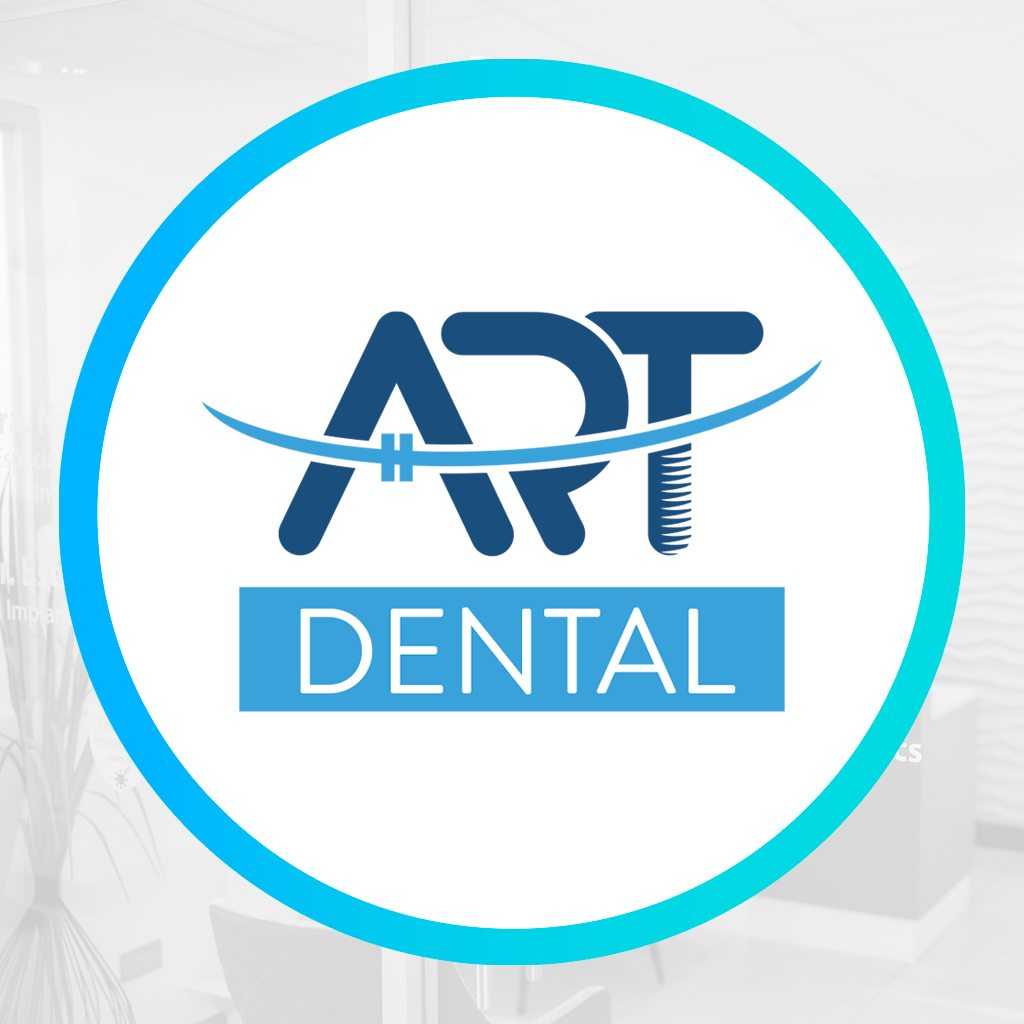

Share this listing